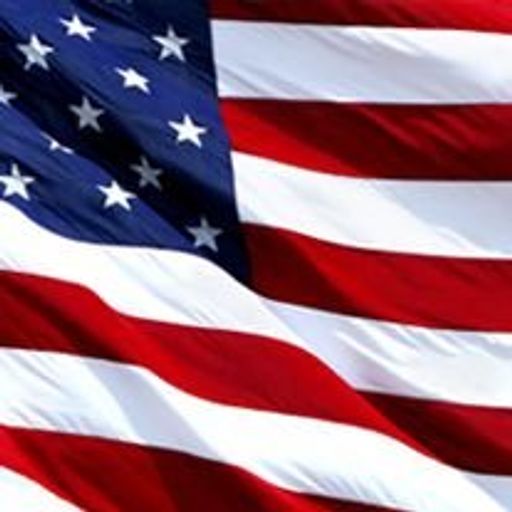Anthony Tucker TRENTON Anthony Tucker, citizen soldier, died Oct. 4, 2014, having reached the age of 91. Born in Queensland near Fitzgerald, GA, July 6, 1923, he was the son of Luther Tucker and Arthur Lee Hall Jones Tucker. He was predeceased by his parents; his first wife, Mordeen Jones Tucker; his son, Anthony Tucker Jr.; and his brothers and sisters, Herman Tucker, Simon Tucker, John Henry Tucker, Katie May Barnes, Thelma Elliot, Otis Powell, Maggie Evans, Essie Williams, Hazel Knight, Rosa Lee Watson, Annie Law, Clemencee Jones, Willie B. Jones, and Lonnie Jones. He is survived by his wife, Carol Bosche Tucker; his sons, John Emory Tucker and Michael Douglass Tucker; his granddaughter, Jessica Mayers; two grandsons, Andre Mayers Jr. and Ja'Vaugn Mayers; Anthony's brothers and sisters, Martha Hoover, Vera Johnson, Yusuf Bilal, Doris Putman, Luther Tucker Jr., and William Tucker; and numerous nieces, nephews, grandnieces, grandnephews, and their spouses and children. After completing his high-school education and taking technical training in Atlanta, Anthony Tucker was inducted into the U.S. Army on Feb. 13, 1943. He followed the D-Day invasion into France, stringing communication lines up to the front and sleeping in the snow. Shot at by the enemy, he was, like other African-American soldiers, not allowed to carry a gun, and came back after World War II determined to work for democracy at home. Discharged in Atlantic City, he stayed in New Jersey, settling in Plainfield. He was unable to find work that would use his Army training, because the telephone company was not hiring black workers. He found employment as an industrial mechanic (plumber) at American Cyanamid Co. in Bound Brook, where he worked until retirement. His experiences of Northern and Southern segregation, as well as the refusal of his bank to give him a home loan, made him ready to work for change. When Woolworth's in Plainfield was picketed in sympathy with lunch-counter sit-ins in the South, he became acquainted with activist members of the Plainfield Unitarian Church, and soon joined that church. He was the lead actor in a slide show, "Liberty Street One Way," named after a street sign in Plainfield, about the circumscribed area where blacks could find housing in the city. With others, he regularly attended city council meetings and made sure there were black construction workers among those the city employed to build new senior housing. By writing to New Jersey senators, he changed the practice of the drugstore in Fitzgerald, GA, where there was a U.S. Post Office branch, of having separate entrances for blacks and whites. Anthony Tucker was a strong union man, and shop steward of his local Oil, Atomic, and Chemical Workers Union (now part of the USW). He was personally responsible for desegregating the locker rooms at American Cyanamid. He also belonged to the DAV, serving as commander of Chapter 16 for a brief period. When LBJ's "Great Society" program Model Cities was instituted, he served on the program's community board for Plainfield. Anthony Tucker participated in the 1963 March on Washington for Jobs and Freedom. A longtime elected Democratic committeeman in Plainfield, he also went to Mississippi during his plant's summer shutdown to work in Medgar Evers' voter registration project, then under the direction of Charles Evers. When he moved with his family to Trenton, Mr. Tucker continued in the role of Democratic committeeman and served on many community boards, among them the boards of Mercer Street Friends, North 21, and the Henry J. Austin health clinic. He also served a term as president of the Trenton Council of Civic Associations. He was an active volunteer for Alice Parker's Lifeline charity, and is remembered for distributing donated bread in the West Ward. After moving to Trenton, he changed his church membership to the Princeton Unitarian Universalist Church, where he found many good friends. As he became less able to get around, he was sustained by the caring visits of the Rev. Carol Haag and her husband, Carl, Raj Nigam, Joy Mahmoud, Teresa Stevens, and Elizabeth Silverman. Neighborhood friends Carolyn Ford and Carolyn Wade also visited and talked with him. In his last days, he was lovingly cared for by his niece, Cassandra Grimes. Above all, Anthony Tucker cared about and enjoyed his extended family. He visited the elders, encouraged the students, and played with the children. He hoped for and expected their continued flourishing.
Photo Gallery
Guestbook
Visits: 2
This site is protected by reCAPTCHA and the
Google Privacy Policy and Terms of Service apply.
Service map data © OpenStreetMap contributors





